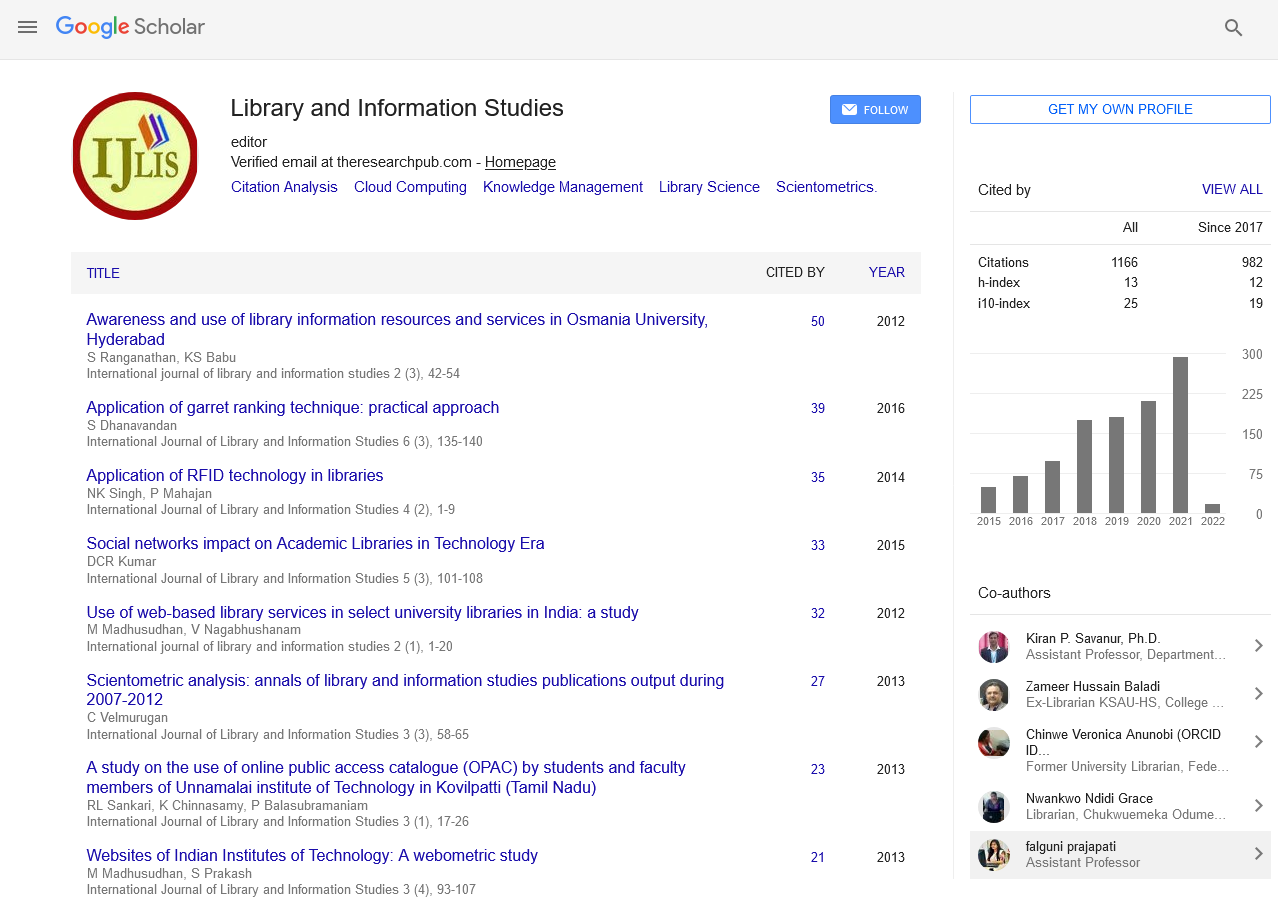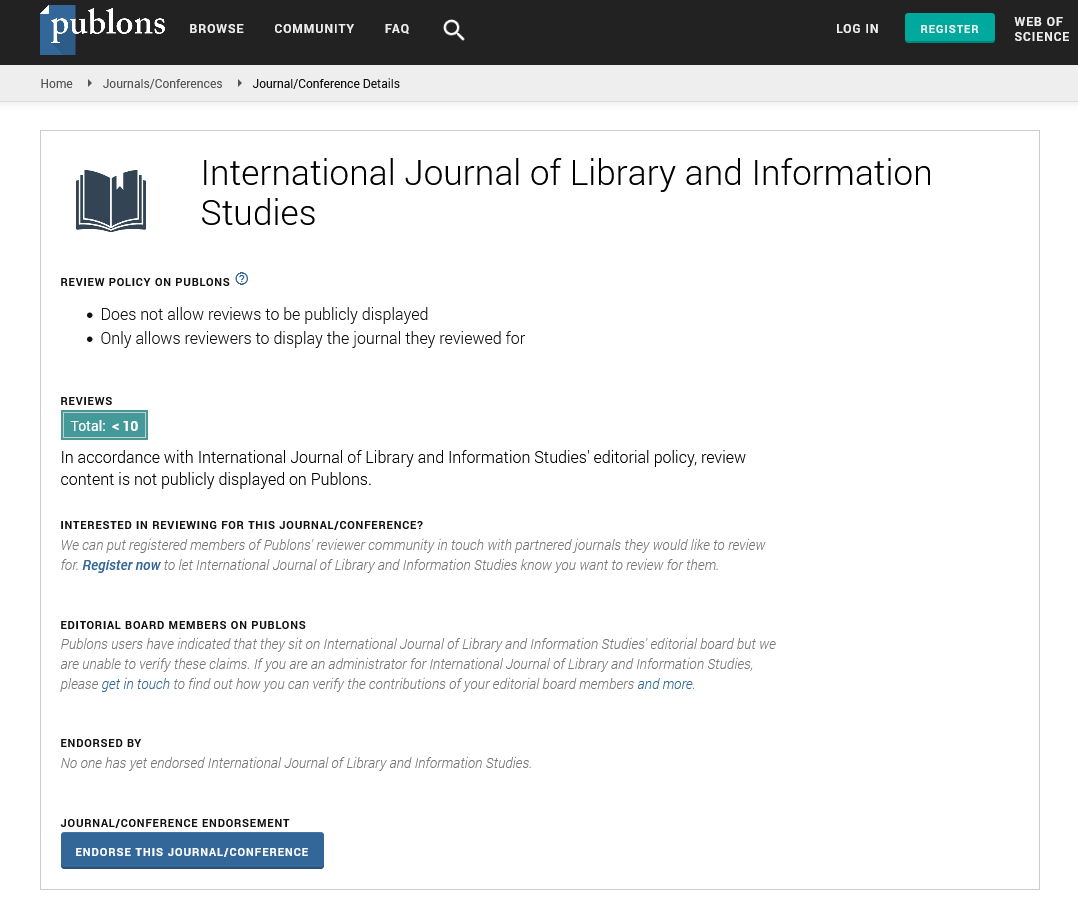

INFORMATION LITERACY PROGRAMMES AND PRACTICES: A SURVEY OF SELECTED ACADEMIC INSTITUTIONS OF DAHOD DISTRICT
Abstract
Author(s): HITESH CHAUHAN
Information literacy (IL) is the set of skills that allows us to find, evaluate and use the information we need1. Libraries have long been involved in training their users in library use, its services and sources. Programmes such as library orientation, user education, etc organize by libraries to teach the user how to use library, how to search information sources and how to access information in the digital age. Information literacy is critically important in present age, because we are surrounded by a growing ocean of information in all forms. Research in this area in developing countries such as India is still in primary stage. This paper is a case study of position of information literacy in selected libraries of higher institutions of dahod division. The survey found out that only 14.28% of respondents conduct IL training at regular basis and 35.71% of respondents conduct IL training only for new users. The present study demonstrates various aspects of information literacy such as frequency of IL programmes, organization of IL programmes, instructional materials for IL programmes, IL programmes for different category of users, problems in effective delivery of IL training, resources required for IL program, techniques and methods used in IL programmes. The result of survey also provides information about interest of librarians in IL programmes. It is suggested that information literacy should be included in initial and in service training programmes, and be available as apart of teachers’ ongoing professional development.
Call for Papers
Authors can contribute papers on
What is Your ORCID
Register for the persistent digital identifier that distinguishes you from every other researcher.
Social Bookmarking
Know Your Citation Style
American Psychological Association (APA)
Modern Language Association (MLA)
American Anthropological Association (AAA)
Society for American Archaeology
American Antiquity Citation Style
American Medical Association (AMA)
American Political Science Association(APSA)



